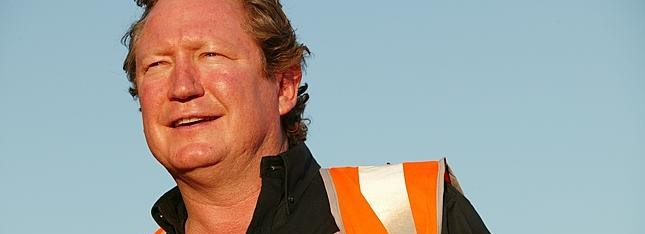The High Court has ruled that Fortescue Metals Group and its chairman Andrew Forrest did not mislead investors, in a landmark decision on company disclosure rules that is a major blow for the Australian Securities and Investments Commission.
The decision casts doubt on the effectiveness of the continuous disclosure regime and also means ASIC may have to reconsider its litigation strategies.
The High Court overturned last year’s decision of the full bench of the Federal Court that found Fortescue misled investors in 2004 by telling them it had “binding” contracts with Chinese parties that would help fund the building of rail lines and other assets.
The High Court unanimously allowed Mr Forrest’s appeal.
“Four members of the court held that the statements made by Fortescue and Mr Forrest represented to those hearing or reading them that Fortescue and the Chinese state-owned entities had entered into agreements that each intended to be binding,” the court says in a decision summary.
“This representation was neither false nor misleading. There was no evidential basis for assuming that a person hearing or reading these statements would understand that the parties had entered into agreements that would be enforced by an Australian court according to Australian law should a dispute ever arise between them.
“Because the statements were neither misleading nor deceptive, the court further found that Fortescue and Mr Forrest had not failed to meet their obligations under the Corporations Act. The court therefore set aside the full court’s decision and declarations and reinstated the primary judge’s decision that Fortescue and Mr Forrest had not contravened the Corporations Act.”
Fortescue entered a trading halt pending the ruling on Tuesday morning. The company said it would not comment until its shares resumed trading, which is expected to happen soon.
On February 18 last year, the full bench of the Federal Court found Fortescue and Mr Forrest guilty of misleading investors, overturning the decision of a trial judge who had cleared Mr Forrest of any wrongdoing.
Federal Court judges Patrick Keane, Arthur Emmett and Ray Finkelstein had unanimously ruled that Mr Forrest and Fortescue had acted in a misleading and deceptive manner by giving the impression that broad agreements with Chinese construction firms dating back to 2004 were “binding” contracts.
Fortescue told the Australian Securities Exchange that agreements had been reached with Chinese state-owned entities in 2004 to buy iron ore from Fortescue Pilbara mines, which the full court held was misleading because they were not binding, and that the company and Forrest breached continuous disclosure requirements.
The full court decision put the spotlight on ASIC because two of the three judges expressed reservations about ASIC’s decision to pursue the case because there was no evidence of any loss being sustained by any investor who was misled.













